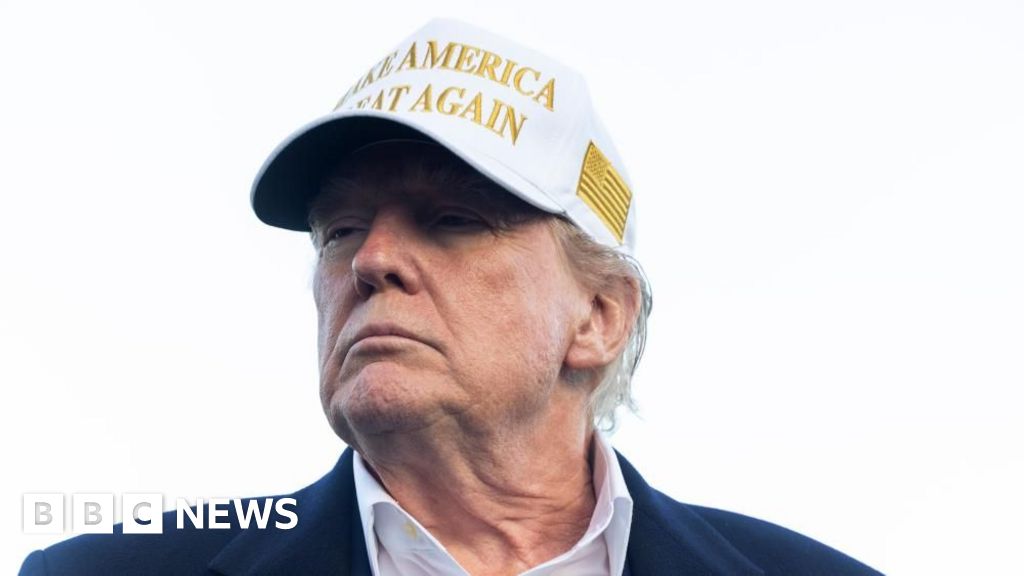Professors Sue Trump Administration Over Harvard Funding Threats

In a significant development for the landscape of higher education in the United States, a group of professors affiliated with Harvard University has initiated legal action against the Trump administration. The lawsuit emerges from the administrations alarming decision to withhold $8.7 billion in federal funding from Harvard, a move seen as a direct assault on the integrity of American educational institutions.
This lawsuit, which is spearheaded by the American Association of University Presidents and its Harvard affiliate, reflects a broader resistance by faculty, students, and alumni against what many perceive as politically motivated attacks on U.S. colleges and universities. The current administrations actions have galvanized a collective pushback from the academic community, which is determined to defend the principles of academic freedom and integrity.
Harvard Law Professor Nikolas Bowie, who is lending his support to the lawsuit, emphasized the critical importance of safeguarding educational rights and freedoms. He stated, Eliminating discrimination and protecting all students is important. But Trump is defying the Civil Rights Act, terrifying students, and illegally holding hostage grants for hospitals and scientific research to accomplish his real goal of punishing academics for our politics. This sentiment underscores the serious implications of the administrations funding threats, not only for Harvard but for the future of academic freedom across the nation.
As the situation unfolds, it is noteworthy that seven prestigious U.S. universities have had their federal grants frozen by the government. This troubling trend is perceived as a large-scale, targeted strategy to compel these institutions to reform their governance and student discipline policies. The administration has cited failures in addressing antisemitism on campuses and has demanded the elimination of diversity, equity, and inclusion policies as a condition for reinstating funding.
Despite the severity of the circumstances, many leaders at these institutions have refrained from mounting legal challenges against the federal orders. Insiders suggest that this reticence stems from fears of further punitive measures that could jeopardize their financial stability. In the face of impending grant freezes, such as those announced for Princeton University this month, institutional leaders are feeling the pressure.
Christopher Eisgruber, Princeton's president, likened the current climate of intimidation to the McCarthy era of the 1950s, a dark period in American history characterized by fear and persecution. Universities and their leaders should speak up and litigate forcefully to protect their rights, he urged, calling upon peers to take a stand against the administration's overreach.
Columbia University, which has seen over $400 million in funding cuts, continues to comply with several of the administrations demands, despite the severe financial implications. Reports indicate that the university may now be facing the possibility of a consent decree, which would impose court-supervised federal oversight of its operations. A legal advisor for higher education institutions remarked on Columbia's cautious compliance, describing it as a prudent course of action amid a climate of uncertainty.
However, there is a growing dissent among faculty, students, and alumni at Columbia who are increasingly vocal about the need for robust institutional defense. Joseph Stiglitz, a Nobel Prize-winning economist at Columbia, expressed his astonishment at the rapid developments and urged academic institutions to leverage their endowments to support their positions. Its happened so fast, everyone is shocked. But universities have to stand up. We should use our endowment to weather the storm, Stiglitz asserted, highlighting the urgency of a collective response.
Adding to the mounting pressure, We Are Higher Ed, a coalition of educators, has been actively gathering signatures across various petitions that demand college leaderships defend academic freedom and oppose what they describe as the unethical, irresponsible, and frequently illegal demands of the Trump administration. One petition, signed by numerous Harvard alumni, voiced a clear warning: Unless the presidents of U.S. colleges and universities speak out and stand together for their students and faculty, the Trump administration will feel no limits in going after those institutions.
Todd Wolfson, president of the American Association of University Professors, expressed his disappointment with the lack of decisive action from university leaders. If a thousand signed a critical public letter, they would have protection, he argued, indicating that unity among university presidents could offer a formidable counter to the administration's tactics. Our members are going to stand up and put pressure on our elected leaders, he added, reinforcing the growing sentiment that now is the time for action.
The intentions of the Trump administration to target universities were foreshadowed before the president took office when Max Eden from the American Enterprise Institute, a right-wing think tank, sent a controversial memo to incoming Education Secretary Linda McMahon. In the memo, Eden called for a never-ending compliance review to ensure that Harvard follows the law and even suggested targeting Columbia University to scare universities straight by freezing research grant funding. These tactics have since been reflected in the administration's approach, which includes withdrawing government grants, revoking visas of foreign students protesting on campuses, and employing innovative methods to identify and dismantle diversity initiatives.
The Trump administration has particularly singled out Columbia and Harvard for scrutiny, while also cutting funds at four additional elite institutionsPrinceton, Brown, Cornell, and Northwesternbased on allegations of antisemitic harassment and discrimination. This crackdown follows a document released last month by the Department of Justice, which listed 60 institutions under investigation.
In a separate yet related matter, the University of Pennsylvania has had $175 million in funding frozen due to its allowance of a transgender athlete to compete in a swimming championship, an action that was compliant with national regulations at the time.
As the battle over higher education funding continues, Eden's proposals have included a staggering 37 percent tax on university endowment income and drastic changes to the nations accreditation systems, aiming to exert greater control over educational institutions. He has also highlighted other universities that could be next on the administrations radar, such as Stanford, the University of Washington, the University of Illinois Chicago, and the University of California system.



























